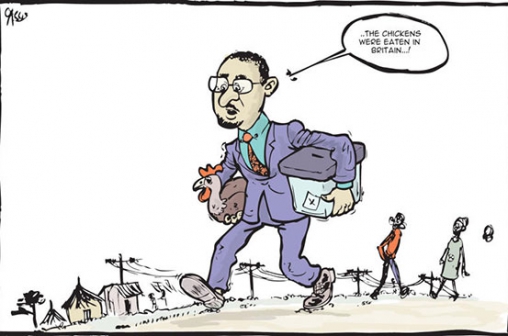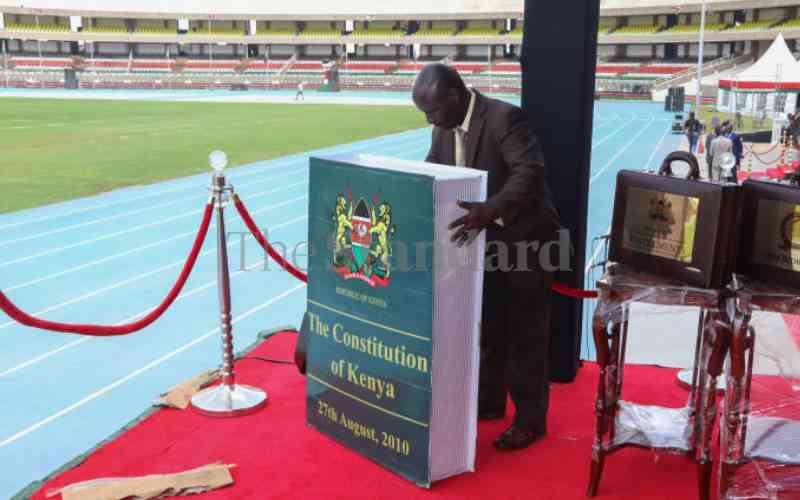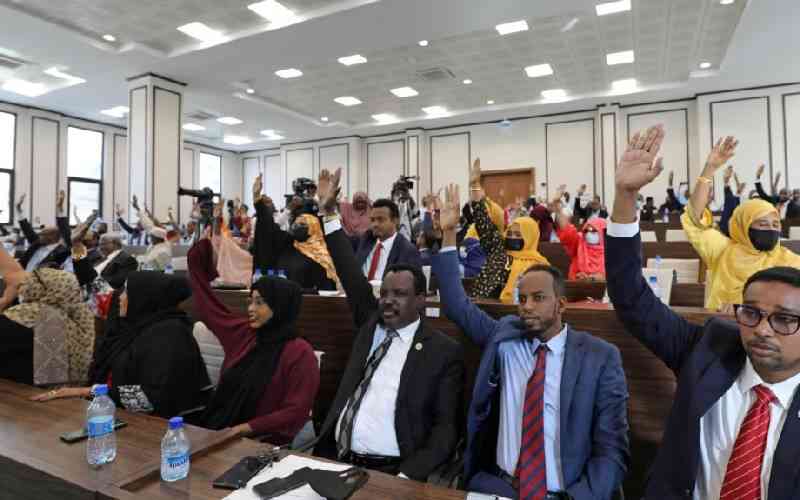
NAIROBI: Old Nyati painted the following scenario for us. An elections commission in country X is suspected - rightly or wrongly – by half the population of having been biased in the previous election. Investigations have revealed the shenanigans and cynicism within the commission that accompanied acquisition of faulty elections equipment. Then a foreign court convicts its citizens for bribing or attempting to bribe the commission’s officials. At the same time, the head of the elections commission utters words that show bias against the losing side in the election. And then, when the losing side presents the body with one million signatures required to trigger the process of changing sections of the Constitution, it plays a cat-and-mouse game, temporising by giving this or that reason.
Then, a few days after key members of the winning side declare the signatures not to be genuine, the commission comes out and says the signatures had failed to reach the constitutional threshold required to trigger a referendum. A few years earlier, Old Nyati told us, ethnic violence had erupted in the country because the losing side believed the predecessor commission had robbed them of victory. Since that violence, beneath the surface, communities have remained deeply suspicious of one another. Now, another election is looming.
Old Nyati paused before posing: What do you think would be the right thing to do? Without hesitation, we, gathered in his compound, answered that simple logic and common sense suggested that the competing sides in the election had to jointly agree on a neutral elections arbiter. Old Nyati sighed and said often times, solutions to problems of a political or economic nature in Africa just need simple common sense. The old man shook his head sadly and pronounced, “The scenario I have described is not imagined...it is the reality in Kenya. And believe it or not, the country will risk another conflagration because, in Africa, it seems that commonsense is not so common...”
It was a sobering thought, and it made me reflect on Africa’s spectacular failure politically and economically. We seemed too absorbed in small matters, enthralled by myths about the uniqueness of our tribes, excited by small and false theories about the link between intelligence and certain cultural practices, fascinated by prospects of power for its own sake, excited by personality clashes that signify nothing, awed by great wealth no matter how it was acquired, satisfied with small visions, content with low expectations of ourselves.
And we are the best when it comes to playing the victim, and bawling for entitlements. Colonialism, we thunder at conferences, underdeveloped us, it destroyed our culture, imperialism keeps us down. Or we issue threats: the West should give us aid or we will turn to the East. Or make self-righteous demands: We want two permanent seats in the UN Security Council. We like flowery slogans: the African Century, Africa Renaissance, etc. We like to compare ourselves with the worst performers, not the best. We are not ashamed that others who started with much less have made spectacular progress, while we remain plagued by avoidable calamities like famine and poverty. We gallivant across the world, singing praises to a mythical glorious African pre-colonial past. When a problem occurs somewhere on the continent, we are quick to fault the West for not coming to our aid. Thus in Rwanda, we blamed the UN and the West, but hardly asked where African countries and the AU were. We have refused to accept that we are in the situation we are in because of no one else but ourselves. Kenya loses Sh600 billion every year to corruption, Nigeria much more. Neo colonialism and imperialism do not need to knock us down for we have already knocked ourselves out.
A few days after Old Nyati’s lecture, I was walking aimlessly around the village when I came by a man talking to himself. “I am Kisaac Kassan from Kenya,” he introduced himself to me. He was holding a huge bundle of papers. “These,” he explained to me, “are some of the fake signatures we uncovered...” I was shocked to learn who he was. “Sir,” I asked, “don’t you think that the reality or perception of bias disqualifies your commission from conducting the next election?” “No, no, the chickens have not come to roost because they were eaten in Britain, not in Kenya,” he answered cryptically.
 The Standard Group Plc is a
multi-media organization with investments in media platforms spanning newspaper
print operations, television, radio broadcasting, digital and online services. The
Standard Group is recognized as a leading multi-media house in Kenya with a key
influence in matters of national and international interest.
The Standard Group Plc is a
multi-media organization with investments in media platforms spanning newspaper
print operations, television, radio broadcasting, digital and online services. The
Standard Group is recognized as a leading multi-media house in Kenya with a key
influence in matters of national and international interest.
 The Standard Group Plc is a
multi-media organization with investments in media platforms spanning newspaper
print operations, television, radio broadcasting, digital and online services. The
Standard Group is recognized as a leading multi-media house in Kenya with a key
influence in matters of national and international interest.
The Standard Group Plc is a
multi-media organization with investments in media platforms spanning newspaper
print operations, television, radio broadcasting, digital and online services. The
Standard Group is recognized as a leading multi-media house in Kenya with a key
influence in matters of national and international interest.









